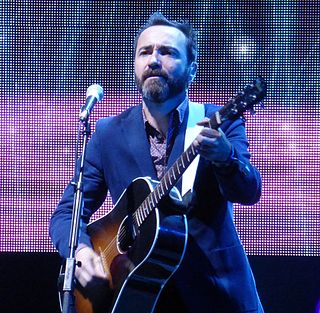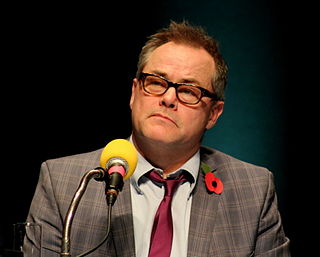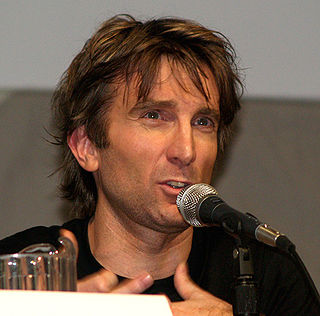A Quote by Sylvia Plath
As a poet, one lives a bit on air. I always like someone who can teach me something practical.
Related Quotes
I've been making a list of the things they don't teach you at school. They don't teach you how to love somebody. They don't teach you how to be famous. They don't teach you how to be rich or how to be poor. They don't teach you how to walk away from someone you don't love any longer. They don't teach you how to know what's going on in someone else's mind. They don't teach you what to say to someone who's dying. They don't teach you anything worth knowing.
In any case, do you really think kids even want something that is relevant to their daily lives? You think something practical like compound interest is going to get them excited? People enjoy fantasy, and that is just what mathematics can provide - a relief from daily life, an anodyne to the practical workaday world.
I have ALWAYS wanted to write - I was the seven-year old entering local library poetry contests, and I recently found my eighth-grade yearbook when we moved, and I had listed "WRITER" as my future occupation. It's always been something I've been hungry to do, but I think the more practical side of me (encouraged by the more practical sides of my parents of course) shied away from pursuing a career in creative writing, in favor of something a little "safer" like law.
Eventually everyone has to hit the dark side of life - Someone doesn't like you, someone doesn't like your work, someone doesn't love you back... people die. What we have is a generation who are super-confident and super-positive about things, but when the least bit of darkness enters their lives, they're paralyzed.
There are a lot of people that have marginal powers, like a guy who levitates a little bit off the ground, or someone who can breathe a little bit of fire, or someone that can freeze a little bit of something, if it's really close to him, you say, "Well, what do you do with that? How is that useful?" There is so much of it around you and you're seeing it, it becomes the important thing in society.
Judge: And what is your occupation in general? Brodsky: Poet, poet-translator. Judge: And who recognized you to be a poet? Who put you in the ranks of poet? Brodsky: No one. And who put me in the ranks of humanity? Judge: Did you study it?...How to be a poet? Did you attempt to finish an insitute of higher learning...where they prepare...teach Brodsky: I did not think that it is given to one by education. Judge: By what then? Brodsky: I think that it is from God.
I know that in a poem, even when the speaker is speaking from the poet's experience, there's always something that's borrowed, some authority that sits outside of the poet that the poem has claimed. There's a dramatic pitch that makes the speaker capable of saying something more courageous or stranger or simply other than what the poet would be able to say.






































